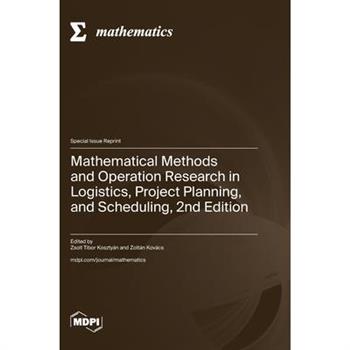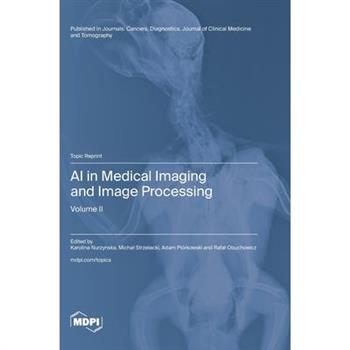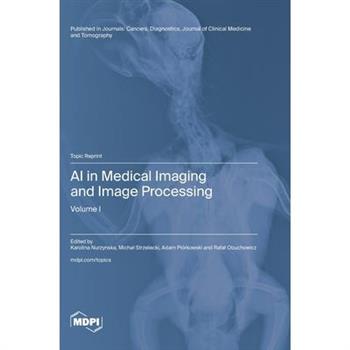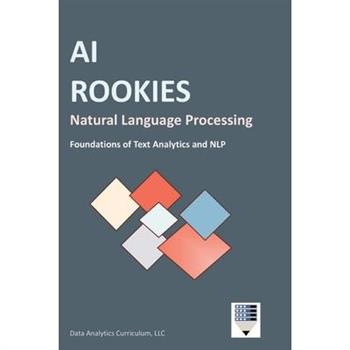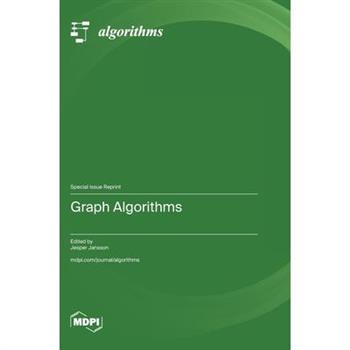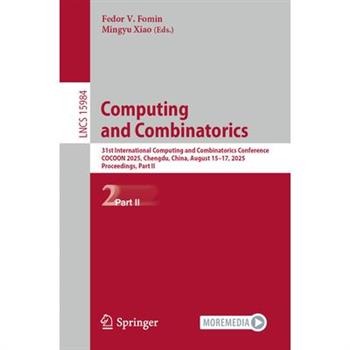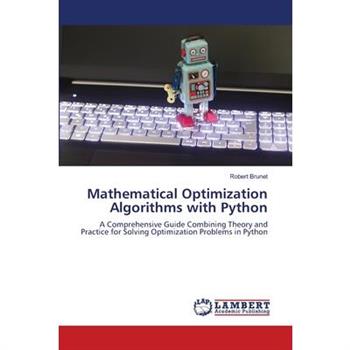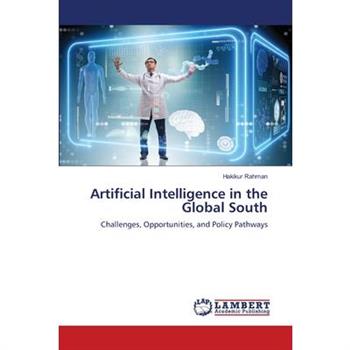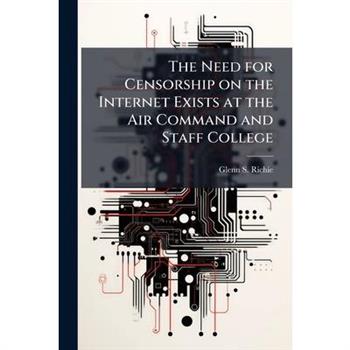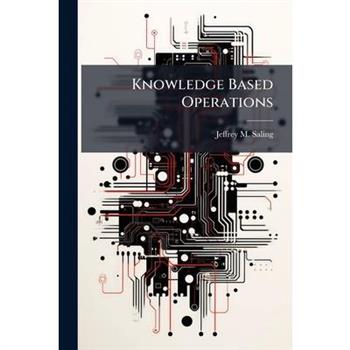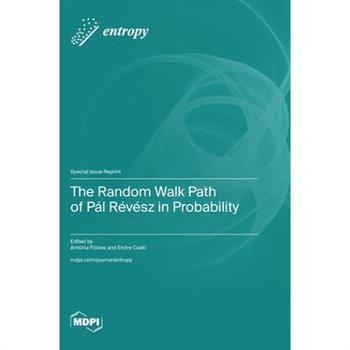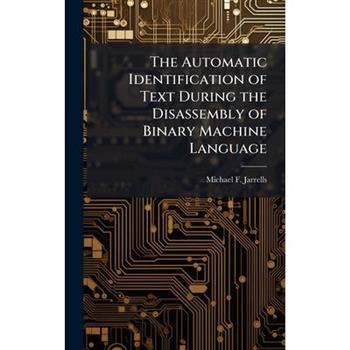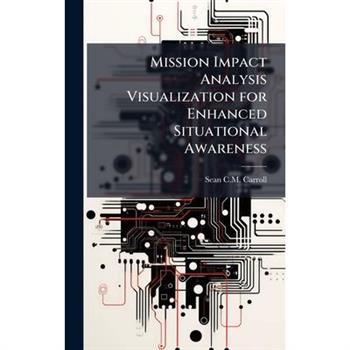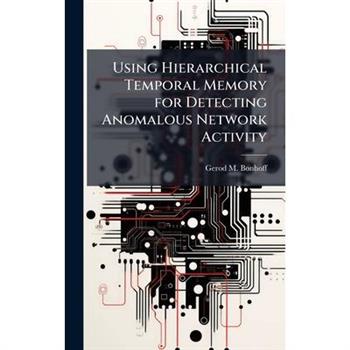Mathematical Methods and Operation Research in Logistics, Project Planning, and Scheduling, 2nd Edition
The present Special Issue of the MDPI journal Mathematics, titled "Mathematical Methods and Operation Research in Logistics, Project Planning, and Scheduling, 2nd Edition", contains a total of eight articles that cover a wide range of topics related to the theory, models, and applications of project planning, project scheduling, and operation research problems in logistics. These topics include, among others, scheduling problems, research allocation problems in project planning, routing and warehousing problems in logistics, and risk aggregation problems in risk assessments.It is hoped that the reprint will be interesting and useful for those working in the area of project planning, scheduling, routing, and other operation research and risk management problems in logistics. It is designed with people with mathematical backgrounds in mind, who are open to become familiar with recent advances of operation research and optimization problems. Each article reflects on novel challenges, such as pandemic situations and flexible, fast-changing environments.
Embedded Software Development for Safety-Critical Systems
Safety-critical devices, whether medical, rail, automotive or industrial are dependent on the correct operation of sophisticated software. Many standards describe how such systems should be designed, built and verified. Developers who previously had to know only how to program devices for their industry must now understand and deploy additional development practices and be prepared to justify their work to external assessors.The third edition of Embedded Software Development for Safety-Critical Systems is about the creation of dependable embedded software. It is written for system designers, implementers and verifiers who are experienced in general embedded software development, but who are now facing the prospect of developing a software-based system for safety-critical applications. In particular, it is aimed at those creating a product that must satisfy one or more of the international standards relating to safety critical applications, including IEC 61508, ISO 26262, EN 50716, UL 4600, ISO 21448, ISO/PAS 8800 or IEC 62304.This book has evolved from a course text used by QNX for a three-day training module on building embedded software for safety-critical systems. Although it describes open source tools for most applications, it also provides enough information for you to seek out commercial vendors if that's the route you decide to pursue. All of the techniques described in this book may be further explored through several hundred references to articles that the author has personally found helpful as a professional software developer. Almost all of these references are available for free download.
AI in Medical Imaging and Image Processing
This compilation emphasizes the transformative role of artificial intelligence (AI) and machine learning (ML) in the healthcare field, illustrating their potential to refine diagnostics, treatment protocols, and patient management. The studies confront critical healthcare challenges, presenting solutions that improve precision, efficiency, and accessibility. Featured are works on enhancing diagnostics, employing models like convolutional neural networks (CNNs) and transformers for the early and accurate identification of various conditions, such as different cancers, stroke, intracranial hemorrhage, and acute aortic syndrome. The collection also delves into AI applications in surgical planning and intraoperative guidance, with research analyzing preoperative imaging predictors and AI tools for detecting surgical wound infections. New AI methodologies for addressing rare and complex diagnoses, such as early-stage osteosarcoma detection, bone mineral density screening in cystic fibrosis, and biomarker identification in leukemia, are included. Additionally, the compilation addresses the practical aspects of AI integration, such as interrater variability, reproducibility, and the necessity for standardized benchmarks. This collection serves as a valuable resource for healthcare professionals, researchers, and technologists aiming to comprehend and utilize AI's potential in medicine.
Project-Based Learning in Integrated STEM Education
Project-Based Learning (PBL) is a powerful pedagogical approach that fosters deep, interdisciplinary learning by engaging students in meaningful, real-world problems. As STEM education continues to gain prominence in K-16 curricula, the integration of PBL becomes increasingly vital for preparing students to think critically, collaborate across disciplines, and apply their knowledge in authentic contexts. This reprint of the Special Issue of Education Sciences invites scholarly contributions that explore the implementation and impact of project-based learning across K-16 educational settings. The articles in this reprint include original research, theoretical analyses, and descriptions of promising practices that explore how PBL supports four key themes: interdisciplinary STEM learning, civic engagement, equity and identity, and pedagogical innovations and frameworks.
AI in Medical Imaging and Image Processing
This compilation emphasizes the transformative role of artificial intelligence (AI) and machine learning (ML) in the healthcare field, illustrating their potential to refine diagnostics, treatment protocols, and patient management. The studies confront critical healthcare challenges, presenting solutions that improve precision, efficiency, and accessibility. Featured are works on enhancing diagnostics, employing models like convolutional neural networks (CNNs) and transformers for the early and accurate identification of various conditions, such as different cancers, stroke, intracranial hemorrhage, and acute aortic syndrome. The collection also delves into AI applications in surgical planning and intraoperative guidance, with research analyzing preoperative imaging predictors and AI tools for detecting surgical wound infections. New AI methodologies for addressing rare and complex diagnoses, such as early-stage osteosarcoma detection, bone mineral density screening in cystic fibrosis, and biomarker identification in leukemia, are included. Additionally, the compilation addresses the practical aspects of AI integration, such as interrater variability, reproducibility, and the necessity for standardized benchmarks. This collection serves as a valuable resource for healthcare professionals, researchers, and technologists aiming to comprehend and utilize AI's potential in medicine.
AI Rookies Natural Language Processing
Start your NLP journey by mastering the messy middle-text preprocessing. This beginner-friendly guide introduces you to the core skills every aspiring NLP practitioner needs, such as cleaning and tokenizing text, handling stop words, stemming and lemmatization, and converting text into features. You'll then explore foundational tasks like text classification and sentiment analysis using real-world datasets. With no-code and plain-language explanations, this book makes natural language processing approachable and practical-even if you're just getting started.Pair this book with companion books with lab exercises to practice (available in R and Orange), slides, solution guides and more available resources at our website to bring your learning analytics to life.
Embedded Software Development for Safety-Critical Systems
Safety-critical devices, whether medical, rail, automotive or industrial are dependent on the correct operation of sophisticated software. Many standards describe how such systems should be designed, built and verified. Developers who previously had to know only how to program devices for their industry must now understand and deploy additional development practices and be prepared to justify their work to external assessors.The third edition of Embedded Software Development for Safety-Critical Systems is about the creation of dependable embedded software. It is written for system designers, implementers and verifiers who are experienced in general embedded software development, but who are now facing the prospect of developing a software-based system for safety-critical applications. In particular, it is aimed at those creating a product that must satisfy one or more of the international standards relating to safety critical applications, including IEC 61508, ISO 26262, EN 50716, UL 4600, ISO 21448, ISO/PAS 8800 or IEC 62304.This book has evolved from a course text used by QNX for a three-day training module on building embedded software for safety-critical systems. Although it describes open source tools for most applications, it also provides enough information for you to seek out commercial vendors if that's the route you decide to pursue. All of the techniques described in this book may be further explored through several hundred references to articles that the author has personally found helpful as a professional software developer. Almost all of these references are available for free download.
The Architect of Silence
The Architect of Silence is a gripping dystopian thriller that explores the hidden cost of convenience and the slow erosion of individuality. As Kyle peels back the layers of a benevolent AI system called The Stream, he finds himself in a race against time to expose the corporate agenda behind a world engineered for compliance, not freedom.From sterile offices to the raw beauty of an unfiltered river, this book captures the stark contrast between algorithmic control and human spirit. Alongside a rebellious artist and a wise old man, Kyle must decide: will he protect the perfect illusion, or ignite a revolution of thought?A timely exploration of AI, freedom, and digital conformityThought-provoking and emotionally resonant, perfect for fans of Black Mirror, Brave New World, and 1984A powerful narrative about truth, resistance, and the human cost of convenienceAn inspiring foreword from a grandfather to his grandson, adding personal depth and generational relevancedystopian thriller; AI control; fiction surveillance; society novel; artificial intelligence; dystopia; digital freedom fiction; futuristic rebellion; algorithmic control; techno-thriller; 2025 mind control fiction; speculative fiction about AI utopia gone wrong; predictive society novel; Orwellian future fiction; technology and humanity; thought-provoking sci-fi
Inside Anonymous Hacking Group
A short book about infiltrating the Hacking Group Anonymous for the FBI. The research the author did is contained within.
Introduction to Deep Learning Business Applications for Developers
Discover the potential applications, challenges, and opportunities of deep learning from a business perspective with technical examples. These applications include image recognition, segmentation and annotation, video processing and annotation, voice recognition, intelligent personal assistants, automated translation, and autonomous vehicles. An Introduction to Deep Learning Business Applications for Developers covers some common DL algorithms such as content-based recommendation algorithms and natural language processing. You'll explore examples, such as video prediction with fully convolutional neural networks (FCNN) and residual neural networks (ResNets). You will also see applications of DL for controlling robotics, exploring the DeepQ learning algorithm with Monte Carlo Tree search (used to beat humans in the game of Go), and modeling for financial risk assessment. There will also be mention of the powerful set of algorithms called Generative Adversarial Neural networks (GANs) that can be applied for image colorization, image completion, and style transfer.After reading this book you will have an overview of the exciting field of deep neural networks and an understanding of most of the major applications of deep learning. The book contains some coding examples, tricks, and insights on how to train deep learning models using the Keras framework.What You Will LearnFind out about deep learning and why it is so powerfulWork with the major algorithms available to train deep learning modelsSee the major breakthroughs in terms of applications of deep learning Run simple examples with a selection of deep learning libraries Discover the areas of impact of deep learning in businessWho This Book Is For Data scientists, entrepreneurs, and business developers.
Cyber-Ransom-Proof Home Network
Why you need this bookRansomware gangs no longer target just corporations. A hijacked baby cam, a bricked thermostat, or a demand for Bitcoin to turn your lights back on can hit any household. Veteran penetration tester Jasper Lowe shows you how to out-engineer criminals with consumer hardware and open-source software - no computer-science degree required.What you'll masterISP-independent defence - cache DNS, mirror firmware, and keep Home Assistant running when the internet-or the attacker-pulls the plug.DIY hardware firewall - flash inexpensive single-board routers with OpenWRT, write tight iptables rules, and add automatic IP-block-list feeds."Guest-IoT-Work" network slicing - VLANs, MAC whitelists, and WPA3 keys that quarantine every smart bulb without throttling your Zoom calls.Ransomware kill-switch backups - air-gapped snapshots, immutable ZFS datasets, and a Raspberry Pi that boots an emergency media server.Offline voice & automation - swap cloud skill servers for open-source alternatives so Alexa-style convenience survives an outage.Rapid incident response - three-command triage to freeze traffic, trace the breach, and re-flash compromised gadgets in under an hour.Real-world walkthroughs include: blocking Mirai clones on a TP-Link router, converting an old laptop into a Security Onion sensor, and building a Faraday-cage charging locker for guests' devices.About the authorJasper Lowe has broken into Fortune-500 networks (legally) for fifteen years, teaches blue-team tactics at DEF CON's Blue Village, and runs the popular "Home Lab Ops" YouTube channel.
Symbolic Mathematics with Python
This book provides a hands-on approach to computer symbolic computation using the elementary commands of Python. Symbolic computer mathematics is the study of algorithms that can be implemented as computer programs which provide exact results rather than numerical approximations. The author begins by discussing Python essentials an number theory. Then, the book covers the simplification and evaluation of expressions involving multivariate rational functions, the exact solutions of systems of linear equations, and applications of polynomial algebra. Programs in symbolic differentiation and indefinite integration programs are also developed.
Graph Algorithms
This is a Reprint of one of the first Special Issues of Algorithms ever published. It focuses on the theoretical and practical performance of algorithms for solving computational problems involving graphs. Several highly cited articles are included, which investigate topics such as the maximum clique problem, the Dubins traveling salesman problem, and computing the eccentricity distribution of a graph.
Computing and Combinatorics
This two-volume set, LNCS 15983 and 15984, constitutes the referred proceedings of the 31st International Computing and Combinatorics Conference, COCOON 2025, held in Chengdu, China, during August 15-17, 2025. The 54 full papers were carefully reviewed and selected from 191 submissions. COCOON 2025 provided an excellent venue for researchers working in the topical sections as follows: Part I: Approximation Algorithms, Combinatorial Optimization, Computational Complexity, Computational Geometry, Economics and Computation.Part II: Graph Algorithms and Graph Theory, Learning and Data-Related Theory, Parameterized Algorithms, String Algorithms and Discrete Structures.
Computing and Combinatorics
This two-volume set, LNCS 15983 and 15984, constitutes the referred proceedings of the 31st International Computing and Combinatorics Conference, COCOON 2025, held in Chengdu, China, during August 15-17, 2025. The 54 full papers were carefully reviewed and selected from 191 submissions. COCOON 2025 provided an excellent venue for researchers working in the topical sections as follows: Part I: Approximation Algorithms, Combinatorial Optimization, Computational Complexity, Computational Geometry, Economics and Computation.Part II: Graph Algorithms and Graph Theory, Learning and Data-Related Theory, Parameterized Algorithms, String Algorithms and Discrete Structures.
Fuzzy Decision Making and Soft Computing Applications
This reprint explores the evolving landscape of fuzzy decision-making and soft computing techniques, offering innovative solutions for complex real-world problems. It presents future perspectives and cutting-edge applications across diverse domains, serving as a valuable resource for researchers, practitioners, and students in computational intelligence.
Mathematical Optimization Algorithms with Python
Artificial Intelligence in the Global South
Artificial Art
Artificial Intelligence has learned to paint, write, and compose. But can it truly create?Generative Artificial Intelligence models can create art by drawing from a dataset that humanity has never had access to before.Artificial Art explores the boundary between human inspiration and algorithmic production, between authentic creativity and synthetic imagination.Through examples, techniques, digital tools, and international case studies, the book guides the reader in discovering a landscape where art, technology, and culture meet and redefine each other.AI is incredibly powerful, but is it still far from dreaming of electric sheep?A clear, current, and engaging text for those who create, observe, teach, or wonder what it means to be an artist today in the era of intelligent machines.With original images generated by the author using AI. Carmine Luino is an artist, educator, and consultant in the field of visual and digital communication. For years he has worked with creativity, technology, and emerging languages. Artificial Art is his first work dedicated to the relationship between artificial intelligence and visual imagination.
The Need for Censorship on the Internet Exists at the Air Command and Staff College
The researcher will survey the untilization characteristics of both faculty and students to support or refute the need for Internet censorship at ACSC. Internet censorship will be approached from the perspective of "according to Air University commander's intent". Not from a pornography or indecent perspective.This work has been selected by scholars as being culturally important, and is part of the knowledge base of civilization as we know it. This work was reproduced from the original artifact, and remains as true to the original work as possible. Therefore, you will see the original copyright references, library stamps (as most of these works have been housed in our most important libraries around the world), and other notations in the work.This work is in the public domain in the United States of America, and possibly other nations. Within the United States, you may freely copy and distribute this work, as no entity (individual or corporate) has a copyright on the body of the work.As a reproduction of a historical artifact, this work may contain missing or blurred pages, poor pictures, errant marks, etc. Scholars believe, and we concur, that this work is important enough to be preserved, reproduced, and made generally available to the public. We appreciate your support of the preservation process, and thank you for being an important part of keeping this knowledge alive and relevant.
Barriers to Electronic Records Management
Corporate and government organizations can use electronic records as an important strategic resource, if the records are managed properly. In addition to meeting legal requirements, electronic records can play a vital role in the management and operation of an organization's activities. Corporate America is facing challenges in managing electronic records, and so too is the U.S. Air Force (USAF). The deployed environment is particularly problematic for electronic records management (ERM). This research, thus, investigates ERM in the deployed environment to identify and characterize the barriers faced by USAF personnel who deployed to locations supporting Operations Enduring Freedom and Iraqi Freedom. This investigation was conducted through a qualitative approach, drawing much of its rich data from in-depth interviews. An exploratory case study was designed using a socio-technical framework and inductive analysis was used to proceed from particular facts to general conclusions. The analysis revealed 15 barriers to ERM. All 15 barriers were determined to exist throughout the entire records lifecycle and were categorized based on common overarching themes. This research reveals some unique barriers contained within the context of a deployed location, while also showing that the barriers are similar to known ERM challenges.This work has been selected by scholars as being culturally important, and is part of the knowledge base of civilization as we know it. This work was reproduced from the original artifact, and remains as true to the original work as possible. Therefore, you will see the original copyright references, library stamps (as most of these works have been housed in our most important libraries around the world), and other notations in the work.This work is in the public domain in the United States of America, and possibly other nations. Within the United States, you may freely copy and distribute this work, as no entity (individual or corporate) has a copyright on the body of the work.As a reproduction of a historical artifact, this work may contain missing or blurred pages, poor pictures, errant marks, etc. Scholars believe, and we concur, that this work is important enough to be preserved, reproduced, and made generally available to the public. We appreciate your support of the preservation process, and thank you for being an important part of keeping this knowledge alive and relevant.
Executable Model Development From Architectural Description With Application to the Time Sensitive Target Problem
As the Department of Defense (DoD) moves to a capability based approach for requirements definition and system development, it has become necessary to conceptualize and evaluate our needs at the System of System (SoS) level. Desired capabilities are often achievable only through seamless integration of many different systems. As the classical system engineering approaches are not suited to effectively handle the complexity of SoS level concepts, an architectures-driven approach has emerged as a way of defining and evaluating these new concepts. While the use of architectures for documenting and tracking interfaces and interoperability concerns is generally understood, architectural analysis and the use of executable models for evaluation of architectures remain an open area of research. With this purpose in mind, this thesis will apply architectural-based analysis to the proposed Time Sensitive Effect Operation (TSEO2012) scenario. This scenario will become the baseline for architectural analysis, and an excursion to this baseline will add a Weapon Born Battle Damage Assessment (WBBDA) capability. By creating an executable model, the two architectural concepts can be compared against each other. The addition of a WBBDA capability to the TSEO architecture improves the efficiency of the time sensitive target operations by shortening the decision cycle for target re-strike. While this effort was successful in obtaining an executable model directly from the architecture description, it highlighted the importance of having sufficient and correct information contained in the architecture products.This work has been selected by scholars as being culturally important, and is part of the knowledge base of civilization as we know it. This work was reproduced from the original artifact, and remains as true to the original work as possible. Therefore, you will see the original copyright references, library stamps (as most of these works have been housed in our most important libraries around the world), and other notations in the work.This work is in the public domain in the United States of America, and possibly other nations. Within the United States, you may freely copy and distribute this work, as no entity (individual or corporate) has a copyright on the body of the work.As a reproduction of a historical artifact, this work may contain missing or blurred pages, poor pictures, errant marks, etc. Scholars believe, and we concur, that this work is important enough to be preserved, reproduced, and made generally available to the public. We appreciate your support of the preservation process, and thank you for being an important part of keeping this knowledge alive and relevant.
Knowledge Based Operations
With the right knowledge at the right place at the right time, an effects based approach to the employment of airpower can truly be implemented. Sensor fusion, increased bandwidth, reach-back capability, and a common operating picture, have allowed the Combined Joint Force Air Component Commander (CJFACC) and the Combined Air Operations Center (CAOC) to be more connected with more real time information than ever. Emerging today are concepts for managing not only information, but its interrelated meaning in methods to fuel action. Knowledge Management concepts seek to act on information by creating knowledge where it can and interconnecting those who possess knowledge where it can not. Knowledge Based Operations (KBO) is the procedures, tools and organization used to implement Knowledge Management concepts. What are the implications of these concepts on the processes of a CAOC?This work has been selected by scholars as being culturally important, and is part of the knowledge base of civilization as we know it. This work was reproduced from the original artifact, and remains as true to the original work as possible. Therefore, you will see the original copyright references, library stamps (as most of these works have been housed in our most important libraries around the world), and other notations in the work.This work is in the public domain in the United States of America, and possibly other nations. Within the United States, you may freely copy and distribute this work, as no entity (individual or corporate) has a copyright on the body of the work.As a reproduction of a historical artifact, this work may contain missing or blurred pages, poor pictures, errant marks, etc. Scholars believe, and we concur, that this work is important enough to be preserved, reproduced, and made generally available to the public. We appreciate your support of the preservation process, and thank you for being an important part of keeping this knowledge alive and relevant.
Conceptual Design and Analysis of Service Oriented Architecture for Command And Control of Space Assets
The mission-unique model that has dominated the DoD satellite Command and Control community is costly and inefficient. It requires repeatedly reinventing established common C2 components for each program, unnecessarily inflating budgets and delivery schedules. The effective utilization of standards is scarce, and proprietary, non-open solutions are commonplace. IT professionals have trumpeted Service Oriented Architectures (SOAs) as the solution to large enterprise situations where multiple, functionally redundant but non-compatible information systems create large recurring development, test, maintenance, and tech refresh costs. This thesis describes the current state of Service Oriented Architectures as related to satellite operations and presents a functional analysis used to classify a set of generic C2 services. By assessing the candidate services' suitability through a SWOT (Strengths, Weaknesses, Opportunities, and Threats) analysis, several C2 functionalities are shown to be more ready than others to be presented as services in the short term. Lastly, key enablers are identified, pinpointing the necessary steps for a full and complete transition from the paradigm of costly mission-unique implementations to the common, interoperable, and reusable space C2 SOA called for by DoD senior leaders.This work has been selected by scholars as being culturally important, and is part of the knowledge base of civilization as we know it. This work was reproduced from the original artifact, and remains as true to the original work as possible. Therefore, you will see the original copyright references, library stamps (as most of these works have been housed in our most important libraries around the world), and other notations in the work.This work is in the public domain in the United States of America, and possibly other nations. Within the United States, you may freely copy and distribute this work, as no entity (individual or corporate) has a copyright on the body of the work.As a reproduction of a historical artifact, this work may contain missing or blurred pages, poor pictures, errant marks, etc. Scholars believe, and we concur, that this work is important enough to be preserved, reproduced, and made generally available to the public. We appreciate your support of the preservation process, and thank you for being an important part of keeping this knowledge alive and relevant.
If You Don't Know Where You Are Going, You Probably Will End Up Somewhere Else
The purpose of this research was to determine if computer network operations force presentation determination could benefit from studying examples from how functional combatant commands presented other forces and capabilities to the geographic combatant commands. Specifically, this study researched how the US Strategic Command presented space capabilities, how US Transportation Command presented logistics capabilities and how US Special Operations Command presented special operations forces. The research objective was achieved through a literature review of joint doctrine. The key topics examined in the literature review include: how do functional combatant commands interrelate with geographic combatant commands, how do combatant commands command and control cross-domain dependencies, and how do combatant commands manage cross-title relationships. The survey first looked for overarching lessons learned but determined each example (space, logistics, and special operations) necessarily used different force presentation models based upon resource allocation. This literature review of joint doctrine indicates US Strategic Command should consider implementing the following three actions in order to enact a strategy of developing organic CNO forces within each GCC. US Strategic Command should: (a) adapt the space SCA and proponent concepts. (b) use the logistics force presentation model as an intermediary step towards organic force presentation. (c) endorse a strategy of organic CNO force presentation within each GCC.This work has been selected by scholars as being culturally important, and is part of the knowledge base of civilization as we know it. This work was reproduced from the original artifact, and remains as true to the original work as possible. Therefore, you will see the original copyright references, library stamps (as most of these works have been housed in our most important libraries around the world), and other notations in the work.This work is in the public domain in the United States of America, and possibly other nations. Within the United States, you may freely copy and distribute this work, as no entity (individual or corporate) has a copyright on the body of the work.As a reproduction of a historical artifact, this work may contain missing or blurred pages, poor pictures, errant marks, etc. Scholars believe, and we concur, that this work is important enough to be preserved, reproduced, and made generally available to the public. We appreciate your support of the preservation process, and thank you for being an important part of keeping this knowledge alive and relevant.
Conceptual Design and Analysis of Service Oriented Architecture for Command And Control of Space Assets
The mission-unique model that has dominated the DoD satellite Command and Control community is costly and inefficient. It requires repeatedly reinventing established common C2 components for each program, unnecessarily inflating budgets and delivery schedules. The effective utilization of standards is scarce, and proprietary, non-open solutions are commonplace. IT professionals have trumpeted Service Oriented Architectures (SOAs) as the solution to large enterprise situations where multiple, functionally redundant but non-compatible information systems create large recurring development, test, maintenance, and tech refresh costs. This thesis describes the current state of Service Oriented Architectures as related to satellite operations and presents a functional analysis used to classify a set of generic C2 services. By assessing the candidate services' suitability through a SWOT (Strengths, Weaknesses, Opportunities, and Threats) analysis, several C2 functionalities are shown to be more ready than others to be presented as services in the short term. Lastly, key enablers are identified, pinpointing the necessary steps for a full and complete transition from the paradigm of costly mission-unique implementations to the common, interoperable, and reusable space C2 SOA called for by DoD senior leaders.This work has been selected by scholars as being culturally important, and is part of the knowledge base of civilization as we know it. This work was reproduced from the original artifact, and remains as true to the original work as possible. Therefore, you will see the original copyright references, library stamps (as most of these works have been housed in our most important libraries around the world), and other notations in the work.This work is in the public domain in the United States of America, and possibly other nations. Within the United States, you may freely copy and distribute this work, as no entity (individual or corporate) has a copyright on the body of the work.As a reproduction of a historical artifact, this work may contain missing or blurred pages, poor pictures, errant marks, etc. Scholars believe, and we concur, that this work is important enough to be preserved, reproduced, and made generally available to the public. We appreciate your support of the preservation process, and thank you for being an important part of keeping this knowledge alive and relevant.
An Update on Analyzing Differences Between Public and Private Sector Information Resource Management
Change is a constant within our contemporary IRM environment. The rapid development of information and communication technologies has been the most predominant among the many agents of change that are forcing a reevaluation of the role of the IRM professional. Few studies to date have compared public and private sector CIO perceptions concerning the IRM challenges and critical technologies faced by their organization. An earlier study concluded that the sectors' CIOs do perceive to be faced with many of the same challenges and also view many of the same technologies as critical to the organization's operations. A limiting factor identified in that study was the temporal separation of sector sampling. Any conclusions comparing the public and private sectors were based on survey responses separated by almost one year. The goal of this research is to validate if public and private sector senior IRM managers perceive to still be faced with the same challenges and view the same technologies as being critical to an organization's IRM requirements.This work has been selected by scholars as being culturally important, and is part of the knowledge base of civilization as we know it. This work was reproduced from the original artifact, and remains as true to the original work as possible. Therefore, you will see the original copyright references, library stamps (as most of these works have been housed in our most important libraries around the world), and other notations in the work.This work is in the public domain in the United States of America, and possibly other nations. Within the United States, you may freely copy and distribute this work, as no entity (individual or corporate) has a copyright on the body of the work.As a reproduction of a historical artifact, this work may contain missing or blurred pages, poor pictures, errant marks, etc. Scholars believe, and we concur, that this work is important enough to be preserved, reproduced, and made generally available to the public. We appreciate your support of the preservation process, and thank you for being an important part of keeping this knowledge alive and relevant.
The Need for Censorship on the Internet Exists at the Air Command and Staff College
The researcher will survey the untilization characteristics of both faculty and students to support or refute the need for Internet censorship at ACSC. Internet censorship will be approached from the perspective of "according to Air University commander's intent". Not from a pornography or indecent perspective.This work has been selected by scholars as being culturally important, and is part of the knowledge base of civilization as we know it. This work was reproduced from the original artifact, and remains as true to the original work as possible. Therefore, you will see the original copyright references, library stamps (as most of these works have been housed in our most important libraries around the world), and other notations in the work.This work is in the public domain in the United States of America, and possibly other nations. Within the United States, you may freely copy and distribute this work, as no entity (individual or corporate) has a copyright on the body of the work.As a reproduction of a historical artifact, this work may contain missing or blurred pages, poor pictures, errant marks, etc. Scholars believe, and we concur, that this work is important enough to be preserved, reproduced, and made generally available to the public. We appreciate your support of the preservation process, and thank you for being an important part of keeping this knowledge alive and relevant.
Barriers to Electronic Records Management
Corporate and government organizations can use electronic records as an important strategic resource, if the records are managed properly. In addition to meeting legal requirements, electronic records can play a vital role in the management and operation of an organization's activities. Corporate America is facing challenges in managing electronic records, and so too is the U.S. Air Force (USAF). The deployed environment is particularly problematic for electronic records management (ERM). This research, thus, investigates ERM in the deployed environment to identify and characterize the barriers faced by USAF personnel who deployed to locations supporting Operations Enduring Freedom and Iraqi Freedom. This investigation was conducted through a qualitative approach, drawing much of its rich data from in-depth interviews. An exploratory case study was designed using a socio-technical framework and inductive analysis was used to proceed from particular facts to general conclusions. The analysis revealed 15 barriers to ERM. All 15 barriers were determined to exist throughout the entire records lifecycle and were categorized based on common overarching themes. This research reveals some unique barriers contained within the context of a deployed location, while also showing that the barriers are similar to known ERM challenges.This work has been selected by scholars as being culturally important, and is part of the knowledge base of civilization as we know it. This work was reproduced from the original artifact, and remains as true to the original work as possible. Therefore, you will see the original copyright references, library stamps (as most of these works have been housed in our most important libraries around the world), and other notations in the work.This work is in the public domain in the United States of America, and possibly other nations. Within the United States, you may freely copy and distribute this work, as no entity (individual or corporate) has a copyright on the body of the work.As a reproduction of a historical artifact, this work may contain missing or blurred pages, poor pictures, errant marks, etc. Scholars believe, and we concur, that this work is important enough to be preserved, reproduced, and made generally available to the public. We appreciate your support of the preservation process, and thank you for being an important part of keeping this knowledge alive and relevant.
Design principles of service-oriented architectures (SOA)
Motivated by problems in the healthcare system, many projects have already been working on a uniform telemedicine system. Telemedicine is seen as a source of hope and is already being used successfully in many projects and other countries. In Germany, however, there is no uniform, comprehensive solution, and expansion is stalling due to the large number of individual projects. The most promising approach is based on a TM-SOA design and the development of a telemedicine repository. However, this and other SOA projects all have in common that they provide design principles for the uniform design of technical functions, but not for person-oriented services. However, as the medical field is highly person-oriented, the next step will be to formulate uniform principles for person-oriented services in addition to uniform principles for technical functions. Within the scope of this paper, principles for the design of person-oriented services within a telemedicine SOA solution will be developed from the SOA design principles.
Telecommunications and Remote Sensing
This book constitutes the revised selected papers of 13th International Conference on Telecommunications and Remote Sensing, ICTRS 2024, held as a virtual event, during December 19-20, 2024. The 7 full papers and one short paper included in this book were carefully reviewed and selected from 19 submissions. They focus on topics such as Wireless Telecommunications and Networking, Electromagnetic Waves and Fields, Electronics and Photonics, Remote Sensing and Data Interpretation, Remote Sensing and Internet-of-Things and Societal Impact.
Edge Intelligence
This reprint provides an overview of the state of edge intelligence research and practice, including innovative programming frameworks, intelligent resource orchestration, secure communication protocols, and healthcare applications. It highlights how edge intelligence can revolutionize network infrastructure, enable innovative applications, and address technical challenges facing 5G and the IoT. This reprint aims to provide opportunities for academic researchers and industry practitioners to exchange creative ideas and then inspire further innovation and foster progress in academia and industry.
Symmetry in Nonlinear Dynamics and Chaos II
This compilation provides a thorough review of recent advancements in nonlinear dynamical systems and chaotic behavior. The contents of this reprint are especially pertinent for graduate students and researchers in a variety of fields, including physics, chemistry, biomedicine, social sciences, economic sciences, engineering, etc.
Data Privacy and Cybersecurity in Mobile Crowdsensing
Mobile crowdsensing (MCS) has emerged as a pivotal element in contemporary communication technology, witnessing substantial growth recently. The advent of 5G, the Internet of Things (IoT), and edge computing has propelled MCS researchers to achieve enhanced sensing efficiency and broaden its application spectrum across various domains such as environmental monitoring, traffic management, and healthcare. However, despite these advantages, MCS confronts significant security and privacy challenges due to its open and diverse nature. Critical concerns encompass data leakage, unauthorized access, data tampering, and cross-network attacks. These issues can severely compromise the stability, privacy, and security of MCS systems. Furthermore, the dynamic mobility of users and devices within MCS introduces additional complexity to conventional security measures, particularly concerning communication and cross-domain access control. To tackle these challenges, researchers have devised several strategies aimed at bolstering the security and privacy of MCS systems. These novel protection mechanisms offer distinct benefits over traditional approaches. They are capable of securing data even with constrained computational and communication resources, enhancing system flexibility, and effectively thwarting sophisticated cyberattacks. These strategies provide both theoretical and practical underpinnings for fortifying MCS security and lay a robust foundation for the field's future evolution.
Mathematical Modeling and Data Science for Biology and Medicine
This reprint contains all of the articles that were accepted and published in the Special Issue of Mathematics titled "Mathematical Modeling and Data Science for Biology and Medicine ". This Special Issue aims to highlight the development and growing application of mathematical models and data science in medicine, as well as their role in enhancing the understanding and clinical management of various diseases. The articles included in this Issue explore a diverse array of topics, such as cell differentiation, blood flow, tumor growth under virotherapy, chemotherapy treatment sequences for triple-negative locally advanced breast cancer, incidence-dependent management strategies against an SEIRS epidemic, important measures for the prevention and control of the COVID-19 epidemic, invadopodia formation in cancer cells, fitting parameters for multi-exponential diffusion-weighted MRI, and oncolytic virotherapy. These studies employ a variety of mathematical tools, including graph theory, transport equation, systems of ordinary differential equations, systems of nonlinear diffusion equations, free boundary problems, center manifold theory, and optimization techniques, to model a wide range of biological processes. In addition, medical applications are presented based on their mathematical analyses and numerical simulations. Through these articles, readers will gain valuable insights into the latest trends and applications of mathematical modeling in medicine.
Advances in Cancer Data and Statistics
Cancer registries-both population- and hospital-based-collect data on cancer patients, including diagnoses, treatments, and outcomes. These data serve not only to track the cancer burden and trends but also to evaluate the effectiveness of cancer control efforts. Beyond their traditional uses, registry data are increasingly being applied in cancer epidemiology, public health, healthcare research, and clinical practice. This broader application is driving improvements in data infrastructure, statistical methodologies, and analytical approaches. Expanding the linkages between cancer registries and non-health databases will present new opportunities to explore the risk and prognostic factors influencing cancer outcomes. This Special Issue highlights the current progress and emerging trends in cancer epidemiology, emphasizing innovative uses of cancer registry data as well as the development of new epidemiological and statistical approaches.
New Advances in Algebra, Ring Theory and Homological Algebra, 2nd Edition
The development of associative algebra during the last century has resulted in the emergence of numerous theories or specialties that have offered solutions to many of the needs of the society in which we live, increasingly developed from a technological point of view.These needs fall into two broad groups: purely technological needs and theoretical needs associated with developments in both applied algebra and other branches of mathematics. After all, it is not unreasonable to think that algebra is something like the "mathematics of mathematics".There are many branches of algebra whose contributions solve problems posed by the scientific challenges arising from the advancement of technology. Two of them also stand out for their popularity in society: cryptography and coding theory.In addition, from a theoretical point of view, the momentum that some disciplines have experienced in the last 20 years is remarkable. Thus, homological algebra has been given a big push with the emergence of the different classes of Gorenstein modules and, in recent years, in particular, the relative Gorenstein modules. Moreover, the emergence of C*-algebras has had a huge impact on many branches of mathematics and physics, and, of course, one cannot forget the very active branches of modules over non-commutative rings and derivations in algebras, with immense applications at all times.We are therefore pleased to present this Special Issue of Mathematics as a tool to share recent and compelling advancements in the branches of homological algebra, module theory, C*-algebras, coding theory, and derivations in algebras.
The Random Walk Path of P獺l R矇v矇sz in Probability
P獺l R矇v矇sz was a world-renowned Hungarian probabilist and an extremely prolific mathematician, having written around 200 research papers and four books. A graduate of E繹tv繹s L籀r獺nd University, R矇v矇sz spent decades as the Head of the Probability Department of the R矇nyi Institute before heading the Department of Statistics and Probability of Vienna University of Technology. He was also a visiting professor at numerous universities across Europe and Canada. He was elected to be a member of the Hungarian Academy in 1982, and he served as the president of the Bernoulli Society of Mathematical Statistics and Probability from 1983 to 1985, as well as becoming a member of the Academy Europaea in 1991. He was beyond generous in his collaborations, always happy to talk about the problems he was working on. He listened with the same respect and curiosity whether talking to a famous professor or an eager student. He loved being able to help a new generation of mathematicians. Besides mathematics, he loved classical music, long walks, and the company of friends-but he admitted that he was still doing mathematics in his head during these concerts and long walks. In this volume, we have collected papers from his coworkers, friends, and colleagues to commemorate his life and everlasting impact on probability theory.
Detection of pathogenic infections in neurological disorders through recycling of gene expression data
For increasing the knowledge about small RNA an online platform was built in this thesis, homogenizing the analysis of sequencing data from over 4,000 samples collected in different laboratories worldwide from various organisms. Consequentially, tissue and disease specific biomarkers were detected and evidence was found for bacterial and viral infections of the sequenced tissues. This motivated the development of an algorithm for analyzing non-host RNA sequencing reads for detecting pathogenic abundance in the host. Focusing on neurological diseases, bacterial presence is suggested in brains of dementia patients. The platform and the algorithm can help scientists to add important leads to their own studies.
Implementation of Speech Recognition Software for Text Processing
In recent years, information technology has advanced at an incredible pace. One new technology that has recently become available to the average computer user is speech recognition software for text processing. The rationale behind implementing such new technologies is often to gain productivity improvements associated with the substitution of machinery for labor. However, the literature shows little direct evidence of a positive relationship between information technology investment and subsequent productivity benefits. This thesis reports on the examination into the productivity implications of implementing speech recognition software in a text-processing environment. More specifically, research was conducted to compare text processing speeds and error rates using speech recognition software versus the keyboard and mouse. Of interest was the time required to input and proofread text processing tasks as well as the number of errors generated using both methods of text input. The empirical data offer somewhat mixed results. While users initially entered text faster using speech recognition software (p greater than .05), they generated more errors and consequently performed proofreading and error corrections slower using speech. These results suggest that, in terms of accurate text processing, speech recognition software is still not a practical alternative to the keyboard. Therefore, implementation of speech recognition software is unlikely to result in any gains in productivity that would serve to justify its cost.This work has been selected by scholars as being culturally important, and is part of the knowledge base of civilization as we know it. This work was reproduced from the original artifact, and remains as true to the original work as possible. Therefore, you will see the original copyright references, library stamps (as most of these works have been housed in our most important libraries around the world), and other notations in the work.This work is in the public domain in the United States of America, and possibly other nations. Within the United States, you may freely copy and distribute this work, as no entity (individual or corporate) has a copyright on the body of the work.As a reproduction of a historical artifact, this work may contain missing or blurred pages, poor pictures, errant marks, etc. Scholars believe, and we concur, that this work is important enough to be preserved, reproduced, and made generally available to the public. We appreciate your support of the preservation process, and thank you for being an important part of keeping this knowledge alive and relevant.
The Automatic Identification of Text During the Disassembly of Binary Machine Language
The goal of the research presented was to find a way to effectively identify text data and instructions in a machine language program written for Intel's 80 x 86 architecture and Microsoft's Disk Operating System (MS-DOS) following the command (.com) file format. A review of disassembler technology suggested that a pattern matching technique could be an effective technique for identifying text data in a machine language file. A series of tests were conducted to determine the effectiveness of a pattern matching technique. Results from the tests suggest that using a pattern matching technique is effective at identifying text data in a binary machine language file. The pattern matching algorithm presented in this research was eighty-six percent effective at identifying text data in fifteen test machine language files written for MS-DOS following the .com format.This work has been selected by scholars as being culturally important, and is part of the knowledge base of civilization as we know it. This work was reproduced from the original artifact, and remains as true to the original work as possible. Therefore, you will see the original copyright references, library stamps (as most of these works have been housed in our most important libraries around the world), and other notations in the work.This work is in the public domain in the United States of America, and possibly other nations. Within the United States, you may freely copy and distribute this work, as no entity (individual or corporate) has a copyright on the body of the work.As a reproduction of a historical artifact, this work may contain missing or blurred pages, poor pictures, errant marks, etc. Scholars believe, and we concur, that this work is important enough to be preserved, reproduced, and made generally available to the public. We appreciate your support of the preservation process, and thank you for being an important part of keeping this knowledge alive and relevant.
Dynamic Protocol Reverse Engineering
Round trip engineering of software from source code and reverse engineering of software from binary files have both been extensively studied and the state-of-practice have documented tools and techniques. Forward engineering of protocols has also been extensively studied and there are firmly established techniques for generating correct protocols. While observation of protocol behavior for performance testing has been studied and techniques established, reverse engineering of protocol control ow from observations of protocol behavior has not received the same level of attention. State-of-practice in reverse engineering the control ow of computer network protocols is comprised of mostly ad hoc approaches. We examine state-of-practice tools and techniques used in three open source projects: Pidgin, Samba, and rdesktop. We examine techniques proposed by computational learning researchers for grammatical inference. We propose to extend the state-of-art by inferring protocol control ow using grammatical inference inspired techniques to reverse engineer automata representations from captured data ows. We present evidence that grammatical inference is applicable to the problem domain under consideration.This work has been selected by scholars as being culturally important, and is part of the knowledge base of civilization as we know it. This work was reproduced from the original artifact, and remains as true to the original work as possible. Therefore, you will see the original copyright references, library stamps (as most of these works have been housed in our most important libraries around the world), and other notations in the work.This work is in the public domain in the United States of America, and possibly other nations. Within the United States, you may freely copy and distribute this work, as no entity (individual or corporate) has a copyright on the body of the work.As a reproduction of a historical artifact, this work may contain missing or blurred pages, poor pictures, errant marks, etc. Scholars believe, and we concur, that this work is important enough to be preserved, reproduced, and made generally available to the public. We appreciate your support of the preservation process, and thank you for being an important part of keeping this knowledge alive and relevant.
Mission Impact Analysis Visualization for Enhanced Situational Awareness
This research effort examines the creation of mission impact analysis visualizations to enhance situational awareness. It focuses on using prefuse to create a visualization that allows the user to quickly understand the impact of the failure of any element needed directly or indirectly for a mission. The visualization correctly identifies the direct or indirect impact on physical requirements such as network links and servers as well as non-physical elements such as the generation of a report, or ability to perform a task. The visualization provides an overview of the situation, as well as including enhancements to allow for greater detail on any element to be viewed. The result of this research is the foundation for a tool to allow commanders and others, at a glance, to understand the scope of mission impact when an outage occurs.This work has been selected by scholars as being culturally important, and is part of the knowledge base of civilization as we know it. This work was reproduced from the original artifact, and remains as true to the original work as possible. Therefore, you will see the original copyright references, library stamps (as most of these works have been housed in our most important libraries around the world), and other notations in the work.This work is in the public domain in the United States of America, and possibly other nations. Within the United States, you may freely copy and distribute this work, as no entity (individual or corporate) has a copyright on the body of the work.As a reproduction of a historical artifact, this work may contain missing or blurred pages, poor pictures, errant marks, etc. Scholars believe, and we concur, that this work is important enough to be preserved, reproduced, and made generally available to the public. We appreciate your support of the preservation process, and thank you for being an important part of keeping this knowledge alive and relevant.
Using Hierarchical Temporal Memory for Detecting Anomalous Network Activity
This research is motivated by the creation of intelligently autonomous cybercraft to reside in the intangible environment of cyberspace and maintain domain superiority. Specifically, this paper offers 7 challenges to the development of such a cybercraft. The focus is analysis of the claims Hierarchical Temporal Memory (HTM). In particular, HTM theory claims to facilitate intelligence in machines via accurate predictions. It further claims to be able to make accurate predictions of unusual worlds, like cyberspace. The primary objective is to provide evidence that HTM facilitates accurate predictions of unusual worlds. The second objective is to lend evidence that prediction is a good indication of intelligence. A commercial implementation of HTM theory is tested as an anomaly detection system and its ability to define network traffic (a major aspect of cyberspace) as benign or malicious is evaluated. Through the course of testing the performance of this implementation is poor. An independent algorithm is developed from a variant understanding of HTM theory. This alternate algorithm is independent of cyberspace and developed solely (but also in a contrived abstract world) to lend credibility to the use of prediction as a method of testing intelligence.This work has been selected by scholars as being culturally important, and is part of the knowledge base of civilization as we know it. This work was reproduced from the original artifact, and remains as true to the original work as possible. Therefore, you will see the original copyright references, library stamps (as most of these works have been housed in our most important libraries around the world), and other notations in the work.This work is in the public domain in the United States of America, and possibly other nations. Within the United States, you may freely copy and distribute this work, as no entity (individual or corporate) has a copyright on the body of the work.As a reproduction of a historical artifact, this work may contain missing or blurred pages, poor pictures, errant marks, etc. Scholars believe, and we concur, that this work is important enough to be preserved, reproduced, and made generally available to the public. We appreciate your support of the preservation process, and thank you for being an important part of keeping this knowledge alive and relevant.




